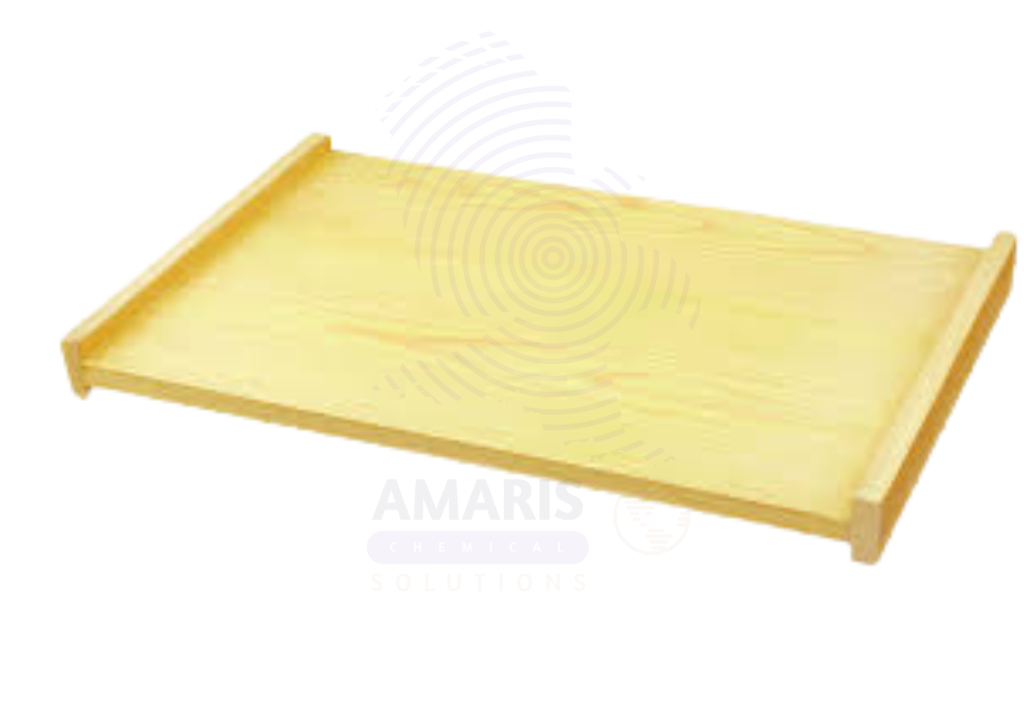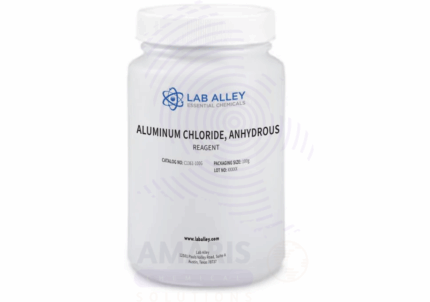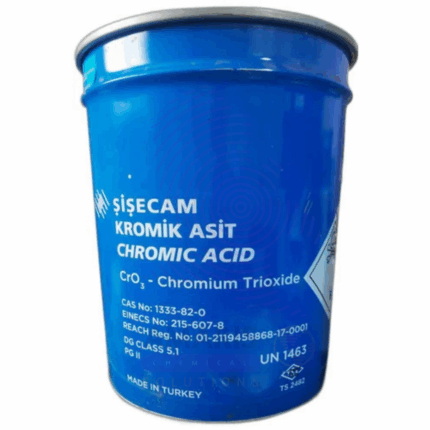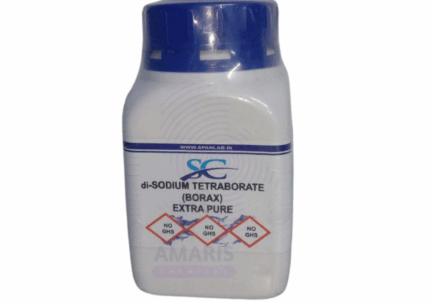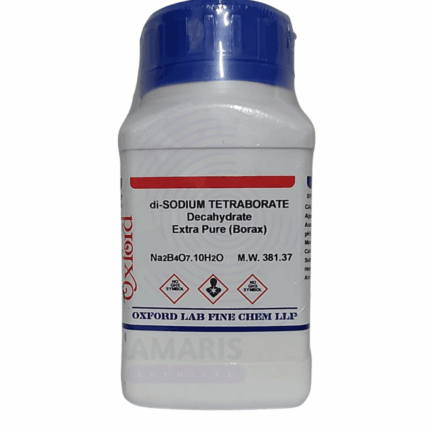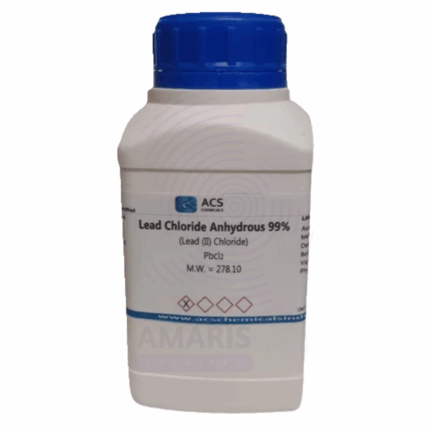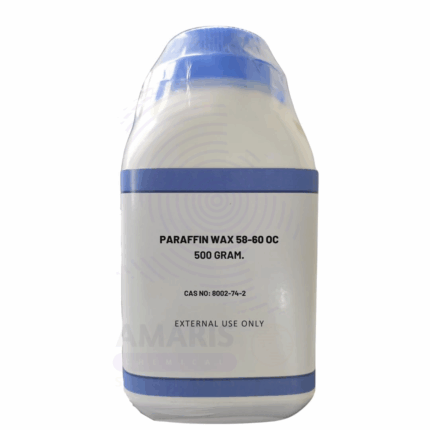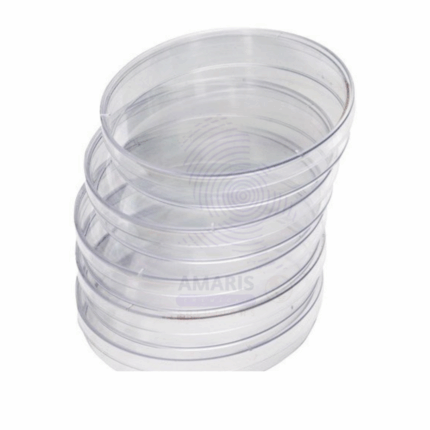
Dissecting Soft Board
$ 30.33 Original price was: $ 30.33.$ 30.19Current price is: $ 30.19.
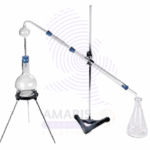
Distillation Apparatus
$ 30.35 Original price was: $ 30.35.$ 30.19Current price is: $ 30.19.
Dissecting Board / Soft Board
Whatsapp Order
Dissecting Board / Soft Board, also known as Soft Board, is a laboratory accessory designed to provide a stable and cushioned surface for securing biological specimens during dissection procedures. Typically made from soft, durable materials like foam or rubber, the board allows easy pinning of specimens without causing damage or slippage. It is widely used in medical, veterinary, educational, and research laboratories for anatomical studies, surgical training, and sample preparation. The soft texture enhances precision and control, facilitating effective specimen manipulation and minimizing tissue trauma.
Description
Table of Contents
Toggle
Dissecting Board / Soft Board
Primary Uses
- Medical and Biological Dissection
- Stabilizing and positioning specimens by pinning during dissections and anatomical studies.
- Providing a safe, cushioned surface to reduce damage to delicate tissues.
- Supporting surgical training by allowing repeated specimen fixation and manipulation.
- Facilitating clear visualization and access to anatomical structures during dissections.
- Used in veterinary dissection labs for sample preparation and examination.
Secondary Uses
- Research and Educational Laboratories
- Assisting botanical, entomological, and zoological dissections requiring stable specimen mounting.
- Supporting forensic specimen preparation and detailed examination.
- Enhancing specimen handling during histological and pathological sample processing.
- Serving as a reusable, easy-to-clean platform for multiple dissection sessions.
- Useful in comparative anatomy research and teaching demonstrations.
KEY PRODUCT FEATURES
1. Basic Identification Attributes
- Material: Soft foam, rubber, or similar pliable, pin-friendly material
- Size: Available in various sizes to accommodate different specimen dimensions
- Surface: Non-toxic, durable, and easy to clean
2. Physical & Chemical Properties
- Flexible yet firm enough to hold pins securely during dissection
- Resistant to chemicals and biological reagents commonly used in laboratories
- Reusable and easy to disinfect for hygienic use
3. Safety & Hazard Attributes
- Non-toxic and safe for handling with standard laboratory precautions
- Reduced risk of injury compared to hard dissecting surfaces
- Requires regular cleaning to prevent microbial contamination
4. Storage & Handling Attributes
- Store in a clean, dry environment away from direct sunlight and harsh chemicals
- Clean with mild disinfectants or laboratory-approved detergents after use
- Inspect periodically for wear or damage affecting pin retention
5. Regulatory & Compliance Attributes
- Manufactured according to laboratory safety and quality standards
- Suitable for use in clinical, veterinary, educational, and research laboratories
6. Environmental & Health Impact
- Often made from recyclable or biodegradable materials depending on type
- Promotes environmentally responsible laboratory practices through reusability
- Dispose of responsibly at end of service life
SAFETY HANDLING PRECAUTIONS
Safety Handling Precautions
- Use gloves when handling specimens and cleaning the board
- Avoid sharp objects except dissection pins to maintain board integrity
- Follow recommended cleaning and sterilization protocols
First Aid Measures
- Minimal risk; wash skin if irritation occurs from cleaning agents
- Clean pin punctures promptly and seek medical attention if needed
Firefighting Measures
- Generally non-flammable; avoid exposure to open flames
- Use suitable extinguishing agents if combustion occurs
Related products
Anhydrous Aluminum Chloride Extra Pure
Anhydrous Aluminum Chloride Extra Pure is a high-purity, white to pale yellow crystalline compound widely used in laboratory chemistry as a powerful Lewis acid catalyst. It plays a key role in organic synthesis, particularly in Friedel–Crafts alkylation and acylation reactions, and is essential in the study of electrophilic aromatic substitution mechanisms. Due to its extreme moisture sensitivity, it hydrolyzes rapidly upon exposure to air, releasing hydrogen chloride gas, and must be handled under strictly dry conditions. The extra pure grade ensures low levels of impurities, making it suitable for high-precision research and moisture-sensitive experimental work. It should be stored in airtight, moisture-free containers in a cool, dry environment, preferably under an inert atmosphere.
Bottle Weighing Plastic
The Bottle Weighing Plastic is a lightweight, durable container designed for accurate weighing and temporary storage of solids and powders in laboratory and industrial environments. Made from high-quality, chemical-resistant plastic, it ensures minimal interaction with samples during weighing and transfer procedures. Its sturdy construction resists cracking or deformation under typical laboratory use. This bottle is essential for precise measurement tasks requiring contamination-free handling and ease of cleaning.
Chromic Acid
Chromic Acid is a powerful oxidizing agent, typically available as a bright orange-red crystalline solid or concentrated solution containing chromium trioxide (CrO₃) dissolved in sulfuric acid. It is a highly corrosive and strong acid used predominantly in industrial applications such as metal finishing, cleaning, and surface treatment. Chromic acid is valued for its excellent oxidative and cleaning properties, particularly in chromium plating, anodizing, and etching processes. Due to its toxicity and environmental hazards, its handling and disposal are strictly regulated. It plays a crucial role in chemical synthesis, laboratories, and manufacturing.
Di-sodium Tetraborate Borax Extra Pure
Di-sodium Tetraborate Borax Extra Pure is a high-purity boron compound widely used in laboratory applications for its buffering, emulsifying, and fluxing properties. In analytical chemistry, it serves as a reagent in qualitative and quantitative analysis, particularly in flame tests and as a flux in the preparation of glass beads for spectroscopy. Its buffering capacity is valuable in maintaining pH stability in various solutions, while its detergent-like action supports cleaning and sample preparation. This extra pure grade ensures minimal contaminants, making it ideal for precision work in research, teaching, and industrial laboratories. Store in a cool, dry environment in a well-sealed container.
Expansion of Liquid Apparatus
Expansion of Liquid Apparatus is a laboratory device designed to measure the volumetric expansion of liquids when subjected to temperature changes. It consists of a graduated glass tube connected to a bulb containing the test liquid. As the liquid heats and expands, the change in volume is observed and recorded through the graduated scale. This apparatus is essential in physical chemistry and materials science for studying thermal expansion coefficients and understanding liquid behavior under varying thermal conditions. It is commonly made from chemically resistant borosilicate glass to withstand thermal stress and chemical exposure.
Lead Chloride Anhydrous Extra Pure
Lead Chloride Anhydrous Extra Pure is a white crystalline compound with the chemical formula PbCl₂, offered in its high-purity, moisture-free form for specialized applications. It is only sparingly soluble in cold water but dissolves more readily in hot water, forming a clear solution upon heating. This compound is used in laboratory synthesis, particularly in the preparation of other lead-based reagents, and plays a role in ceramic glazing, pigment production, and electrochemical processes. In research, it is also employed in photographic materials, optical devices, and inorganic analysis. Due to the toxic nature of lead compounds, strict safety protocols are necessary during storage and handling.
Paraffin Wax Extra Pure
Paraffin Wax Extra Pure is a refined, high-purity hydrocarbon compound derived from petroleum. It appears as a white, odorless, and tasteless solid with a smooth, waxy texture and a relatively low melting point, making it easy to mold and blend with other substances.
This Extra Pure grade is especially suited for laboratory use, cosmetic formulations, pharmaceutical applications, and specialized industrial processes. It is commonly employed in the preparation of ointments, candles, sealing agents, and coating materials due to its excellent insulating, water-repellent, and moisture-barrier properties. Its chemical inertness also makes it a safe choice for embedding biological samples and for use as a lubricant or mold-release agent. Paraffin Wax should be stored in a cool, dry place, away from heat sources, and handled with care to prevent unwanted melting or contamination.
PETRI DISH PLASTIC
Petri Dish Plastic is a shallow, cylindrical laboratory container made from clear, chemically resistant plastic materials such as polystyrene or polypropylene. Designed for single-use or limited reuse, plastic Petri dishes provide a convenient and cost-effective alternative to glass, especially in applications where sterility and disposability are priorities. These dishes are commonly used in microbiology, cell


 Preservatives(food)
Preservatives(food) Flavor Enhancers
Flavor Enhancers Acidulants
Acidulants Sweeteners
Sweeteners Antioxidants
Antioxidants Colorants(food)
Colorants(food) Nutraceutical Ingredients (food)
Nutraceutical Ingredients (food) Nutrient Supplements
Nutrient Supplements Emulsifiers
Emulsifiers
 Collectors
Collectors Dust Suppressants
Dust Suppressants Explosives and Blasting Agents
Explosives and Blasting Agents Flocculants and Coagulants
Flocculants and Coagulants Frothers
Frothers Leaching Agents
Leaching Agents pH Modifiers
pH Modifiers Precious Metal Extraction Agents
Precious Metal Extraction Agents
 Antioxidants(plastic)
Antioxidants(plastic) Colorants (Pigments, Dyes)
Colorants (Pigments, Dyes) Fillers and Reinforcements
Fillers and Reinforcements Flame Retardants
Flame Retardants Monomers
Monomers Plasticizers
Plasticizers Polymerization Initiators
Polymerization Initiators Stabilizers (UV, Heat)
Stabilizers (UV, Heat)
 Antifoaming Agents
Antifoaming Agents Chelating Agents
Chelating Agents Coagulants and Flocculants
Coagulants and Flocculants Corrosion Inhibitors
Corrosion Inhibitors Disinfectants and Biocides
Disinfectants and Biocides Oxidizing Agents
Oxidizing Agents pH Adjusters
pH Adjusters Scale Inhibitors( water)
Scale Inhibitors( water)
 Antioxidants(cosmetic)
Antioxidants(cosmetic) Emollients
Emollients Fragrances and Essential Oils
Fragrances and Essential Oils Humectants
Humectants Preservatives
Preservatives Surfactants(cosmetic)
Surfactants(cosmetic) Thickeners
Thickeners UV Filters
UV Filters
 Fertilizers
Fertilizers Soil Conditioners
Soil Conditioners Plant Growth Regulators
Plant Growth Regulators Animal Feed Additives
Animal Feed Additives Biostimulants
Biostimulants Pesticides (Herbicides, Insecticides, Fungicides)
Pesticides (Herbicides, Insecticides, Fungicides)
 Active Pharmaceutical Ingredients (APIs)
Active Pharmaceutical Ingredients (APIs) Excipients
Excipients Solvents(pharmaceutical)
Solvents(pharmaceutical) Antibiotics
Antibiotics Antiseptics and Disinfectants
Antiseptics and Disinfectants Vaccine Adjuvants
Vaccine Adjuvants Nutraceutical Ingredients (pharmaceutical)
Nutraceutical Ingredients (pharmaceutical) Analgesics & Antipyretics
Analgesics & Antipyretics
 Analytical Reagents
Analytical Reagents Solvents(lab)
Solvents(lab) Chromatography Chemicals
Chromatography Chemicals Spectroscopy Reagents
Spectroscopy Reagents microbiology-and-cell-culture-reagents
microbiology-and-cell-culture-reagents Molecular Biology Reagents
Molecular Biology Reagents Biochemical Reagents
Biochemical Reagents Inorganic and Organic Standards
Inorganic and Organic Standards Laboratory Safety Chemicals
Laboratory Safety Chemicals Specialty Laboratory Chemicals(Special Laboratory Equipment)
Specialty Laboratory Chemicals(Special Laboratory Equipment)
 Demulsifiers
Demulsifiers Hydraulic Fracturing Fluids
Hydraulic Fracturing Fluids Scale Inhibitors(oil)
Scale Inhibitors(oil) Surfactants(oil)
Surfactants(oil) Drilling Fluids
Drilling Fluids
 Dyes and Pigments
Dyes and Pigments Bleaching Agents
Bleaching Agents Softening Agents
Softening Agents Finishing Agents
Finishing Agents Antistatic Agents
Antistatic Agents
 Admixtures
Admixtures Waterproofing Agents
Waterproofing Agents Sealants and Adhesives
Sealants and Adhesives Curing Compounds
Curing Compounds Concrete Repair Chemicals
Concrete Repair Chemicals Anti-Corrosion Coatings
Anti-Corrosion Coatings
 Surfactants(cleaning)
Surfactants(cleaning) Builders
Builders Enzymes
Enzymes Solvents (Cleaning)
Solvents (Cleaning) Fragrances
Fragrances
 Electronic Chemicals
Electronic Chemicals Catalysts
Catalysts Lubricants
Lubricants Photographic Chemicals
Photographic Chemicals Refrigerants
Refrigerants Automotive chemicals
Automotive chemicals Pyrotechnic Chemicals
Pyrotechnic Chemicals
 Biodegradable Surfactants
Biodegradable Surfactants Bio-based Solvents
Bio-based Solvents Renewable Polymers
Renewable Polymers Carbon Capture Chemicals
Carbon Capture Chemicals Wastewater Treatment Chemicals
Wastewater Treatment Chemicals
 Pigments
Pigments Solvents(paint)
Solvents(paint) Specialty Coatings
Specialty Coatings Binders/Resins
Binders/Resins Additives
Additives Driers
Driers Anti-Corrosion Agents
Anti-Corrosion Agents Functional Coatings
Functional Coatings Application-Specific Coatings
Application-Specific Coatings
 Fresh Herbs
Fresh Herbs Ground Spices
Ground Spices Whole Spices
Whole Spices Spice Blends
Spice Blends Dried Herbs
Dried Herbs
 Leavening Agents
Leavening Agents Dough Conditioners
Dough Conditioners Flour Treatments
Flour Treatments Fat Replacers
Fat Replacers Decoratives
Decoratives Preservatives(baking)
Preservatives(baking)
 Plasticizers & Softeners
Plasticizers & Softeners Reinforcing Agents
Reinforcing Agents Adhesion Promoters
Adhesion Promoters Vulcanizing Agents
Vulcanizing Agents Antidegradants
Antidegradants Blowing Agents
Blowing Agents Fillers & Extenders
Fillers & Extenders Accelerators & Retarders
Accelerators & Retarders